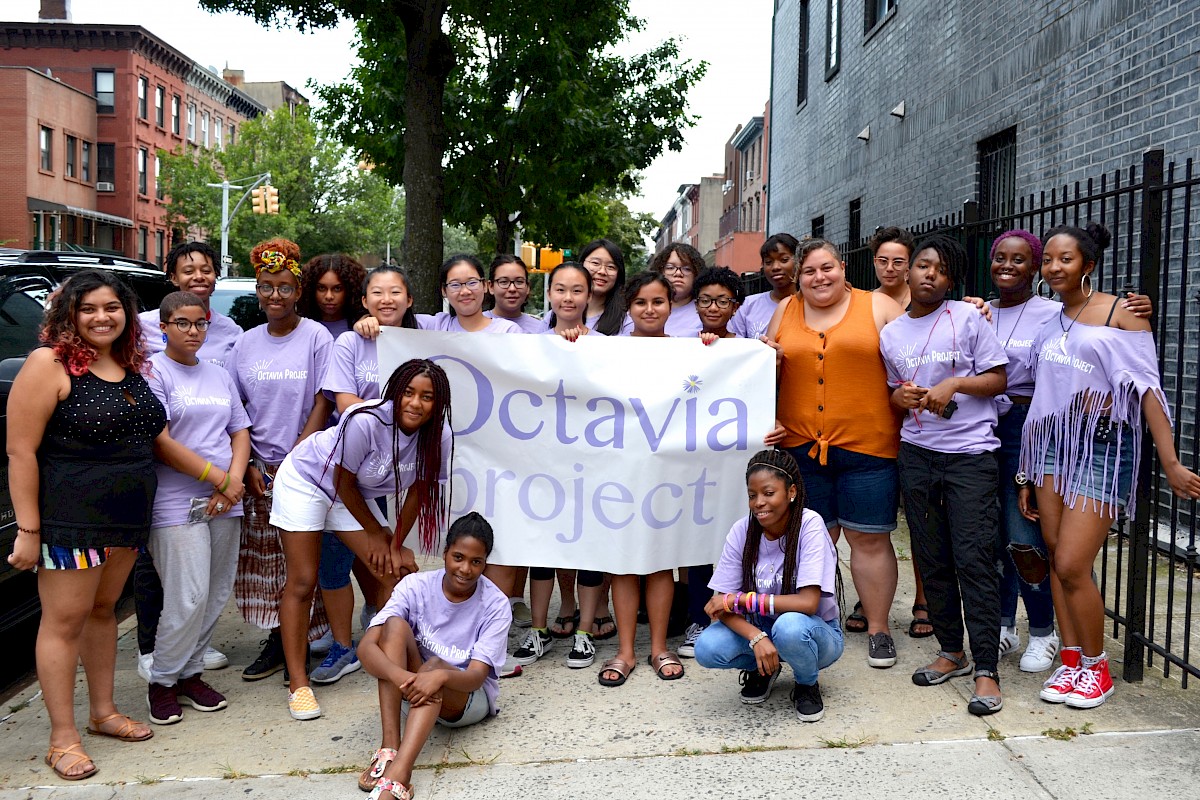Octavia Project

The Octavia Project uses speculative fiction to encourage young women and gender non-conforming youth to dream big and empower them with tools to design their own futures. Their free Summer Institute gives Brooklyn youth the space to explore art, writing, science, and technology while growing their confidence, becoming empowered leaders, and building critical 21st-century skills, all while reimagining futures for themselves and their communities. The project's name is a reference to Octavia Butler, the pioneering African-American writer who broke into the almost exclusively white men's club of science fiction writers with morally complex allegories of racial dynamics, gender construction, and environmentalism.
The Octavia Project uses the creative power of speculative fiction and community to envision new futures and greater possibilities for our world. They foster spaces of imagination and exploration for Brooklyn teens, blending creative writing, art, science, and technology to encourage critical thinking, build confidence, and develop skills in a myriad of subjects. They work with marginalized youth—youth of color, immigrant youth, LGBTQ youth, youth from low-income families—whose voices are often left out of decision-making processes. They believe that the futures, perspectives and communities being built by our participants are vital to the future. They aim to provide them with the support and tools they need to get there.
During our free Summer Institute, young women and trans, gender non-conforming, or non-binary youth develop poems, plays, and stories that are enriched by interdisciplinary projects. Our workshops bring NYC teens together to muse on alternate histories and possible futures with Hugo Award winner N.K. Jemisin and Anaïs Duplan from The Center for Afrofuturist Studies; stretch their minds by coding interactive narrative-based games; world-build with architects and artists; and map new cities with urban planners.
Participants use their art and lived experiences to interrogate the hierarchies and assumptions undergirding our society. Their work grapples with issues of gentrification, body image, climate change, income inequality, racism, bullying, homophobia, and more. By combining art and writing with science and technology, the workshops demonstrate how inquiry, innovation, and storytelling are important across disciplines. Participants build necessary skills like critical thinking, creative problem-solving, digital media literacy, and self-expression while gaining confidence in their voice and vision.